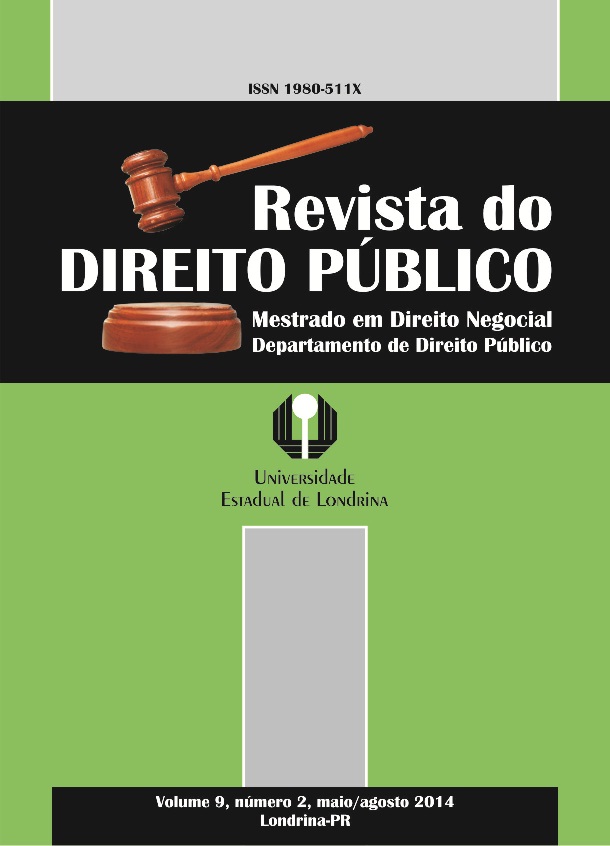The position of Brazil in international negotiations regarding environmental issues
DOI:
https://doi.org/10.5433/1980-511X.2014v9n2p183Keywords:
Development, International negotiations, International relations and sustainable.Abstract
This study aims at the analysis of the overall Brazilian participation in international environmental negotiations in the period from 1972 (Stockholm) to 1997 (Kyoto). Specifically, analysis of the environmental international conference, its objects and contents which provided the evolution of the sustainable development concept; to identify the Brazilian position in each conference, drawing a particular attention to the Brazilian negotiations for the environmental problems solution and finally an analysis of acceptance on the national level of the sustainable development concept and the progress of its inclusion in the Brazilian Environmental Policy. The theoretical reasoning is based on Realism, Liberalism and International Cooperation theories. The conclusion portrays, in addition to the evidence of the hypothesis and the goals achievement, that the discussion of the environment transferred to the international relations field realized fundamental conventions in search for a sustainable world; that the importance of the Brazilian performance in such addressed conferences served, besides mediation, as innovation in the development of concrete actions to the sustainable consolidation concept and, at last, that the analysis brought to the end of sections I, II and III encouraged the progress of the Environmental Political thought in the country. Based on the achieved results, it was suggested the profusion of new researches in order to highlight the importance of the environment in the context of international relations.Downloads
Downloads
Published
How to Cite
Issue
Section
License
Copyright (c) 2025 Wilson Almeida, Débora Rodrigues, Hadassah Sousa Santana

This work is licensed under a Creative Commons Attribution-NonCommercial-NoDerivatives 4.0 International License.
Os autores cedem à Revista do Direito Público, direitos exclusivos de primeira publicação, com o trabalho simultaneamente licenciado sob a Licença Atribuição-NãoComercial-CompartilhaIgual 4.0 Internacional. Esta licença permite que terceiros façam download e compartilhem os trabalhos em qualquer meio ou formato, desde que atribuam o devido crédito de autoria, mas sem que possam alterá-los de nenhuma forma ou utilizá-los para fins comerciais. Se você remixar, transformar ou desenvolver o material, não poderá distribuir o material modificado.












